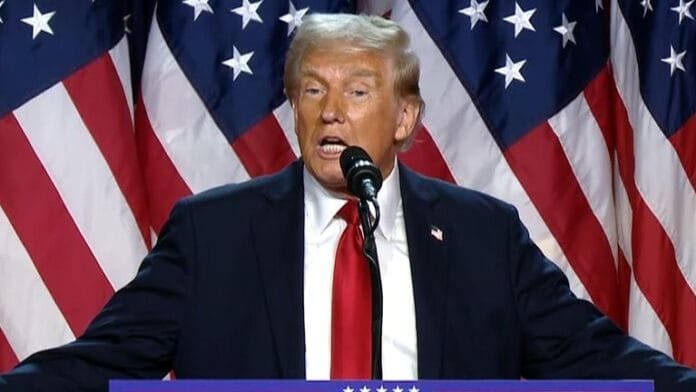In a move that promises to escalate trade tensions, President Donald Trump has signed a proclamation to impose a 25% tariff on automobile imports, effective April 2. This action expands an ongoing trade war aimed at boosting US manufacturing jobs. Trump framed the decision as a direct response to countries taking jobs, wealth, and resources from the US over the years.
The new tariff will apply not only to fully assembled cars but also to key automobile parts such as engines, transmissions, powertrain parts, and electrical components. The White House has indicated the list could grow to include additional parts as the tariff regime progresses. Despite concerns, Trump has stated that the tariffs will be “permanent” with no interest in negotiating exceptions.
The tariffs are projected to generate $100 billion in new annual revenue for the US, with the administration also planning reciprocal tariffs on other goods, including lumber, semiconductors, and pharmaceuticals. Trump touted the measures as part of a broader push to reduce trade deficits and encourage other countries to lower their trade barriers. The tariffs will be implemented on a country-by-country basis, with some partners potentially receiving exemptions.
Impact on the Automotive Industry
The tariffs are expected to hit major automotive players, particularly those from Japan, Germany, and South Korea. Companies like General Motors (GM), Ford, and Stellantis may face significant disruptions in their supply chains. GM imports Chevrolet Silverado pickup trucks from Canada and Mexico, while Stellantis manufactures Jeep Compass SUVs in Mexico. Ford, although producing a larger share of its vehicles domestically, is not exempt and produces models like the Maverick and Bronco Sport in Mexico.
The auto industry has expressed concerns about the impact of these tariffs. Auto manufacturers and trade groups argue that the tariffs could raise the cost of producing and selling vehicles in the US, ultimately leading to higher prices, fewer choices for consumers, and fewer manufacturing jobs. Jennifer Safavian, president of Autos Drive America, warned that the new tariffs would counteract Trump’s goals of boosting domestic manufacturing.
Global Reactions and Potential Retaliation
The announcement has drawn sharp responses from US trading partners. European Commission President Ursula von der Leyen described the move as regrettable, signaling that the EU would seek negotiations while protecting its economic interests. In Canada, Prime Minister Mark Carney labeled the tariffs a “direct attack” on workers in the auto industry, with Ontario Premier Doug Ford suggesting that Canada would retaliate, focusing on US-made cars in the Canadian market.
Trump’s decision is also likely to further strain relations with the US’s closest trading partners, as they prepare to counteract the new levies. Analysts warn that the tariffs could disrupt the integrated automotive supply chains across North America, where parts cross borders multiple times before final assembly.
Domestic Implications and Consumer Impact
While the tariff is aimed at boosting US manufacturing, it could have adverse effects on US consumers already grappling with inflation. Analysts predict that the tariffs will lead to higher prices for both foreign-made and domestic vehicles. The cost of producing a vehicle could increase by thousands of dollars, with some estimates suggesting a $4,000 increase for a crossover vehicle and up to $12,000 for US-made electric vehicles.
In an effort to offset some of these impacts, Trump has proposed a tax deduction for car loans on vehicles made in America, suggesting that consumers could deduct interest payments if they purchase a car manufactured in the US. This proposal is still under negotiation, and it’s unclear how it will play out.
